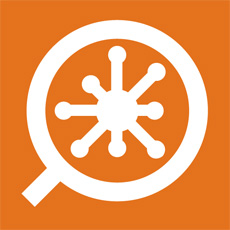The 2014 EVD outbreak in Pujehun, Sierra Leone: epidemiology and impact of interventions
The 2014–2015 Ebola virus disease (EVD) epidemic ha colpito duramente il West Africa, soprattutto Guinea, Sierra Leone e Liberia, with a total of 28,220 reported cases and 11,291 reported deaths (WHO, September 2015). Starting in July 2014, Doctors with Africa CUAMM worked to combat Ebola outbreak in Sierra Leone’s Pujehun District, where it has been

- Author: Ajelli M., Parlamento S., Bome D., Kebbi A., Atzori A., Frasson C., Putoto G., Carraro D., Merler S.
- Published on: BMC Medicine, 2015 Nov 26;13(1):281
- Research country: Serra Leoa
- READ ARTICLE »
The 2014–2015 Ebola virus disease (EVD) epidemic ha colpito duramente il West Africa, soprattutto Guinea, Sierra Leone e Liberia, with a total of 28,220 reported cases and 11,291 reported deaths (WHO, September 2015).
Starting in July 2014, Doctors with Africa CUAMM worked to combat Ebola outbreak in Sierra Leone’s Pujehun District, where it has been active with health projects since 2012. With 49 reported cases and an 85.7% mortality rate, on 10 January 2015 Pujehun was the first district in the country to be declared Ebola-free.
This article aims to analyze both the principal characteristics of the epidemic in the Pujehun District and the work done by Doctors with Africa CUAMM to combat it, in order to understand how it was successfully contained.
It discusses some of the most important steps taken, including contact tracing (the process of identifying and isolating suspected cases); the availability of an adequate number of hospital beds, which made it possible to hospitalize and isolate a much higher percentage (90%) of suspected cases in the Pujehun District than was the case elsewhere in the country (an average of 52%); and the speed with which containment actions were taken. For a health care system as weak as Sierra Leone’s, the indirect consequences of the outbreak could have been much worse than the outbreak itself; however, thanks to the leadership that was shown in tackling the emergency, access to maternal and infant health care services did not decline in a significant manner during the outbreak.
Pesquisa avançada
Procure os artigos publicados usando os filtros.
Compilações científicas
Artigos, pósteres e apresentações das nossas atividades em África.